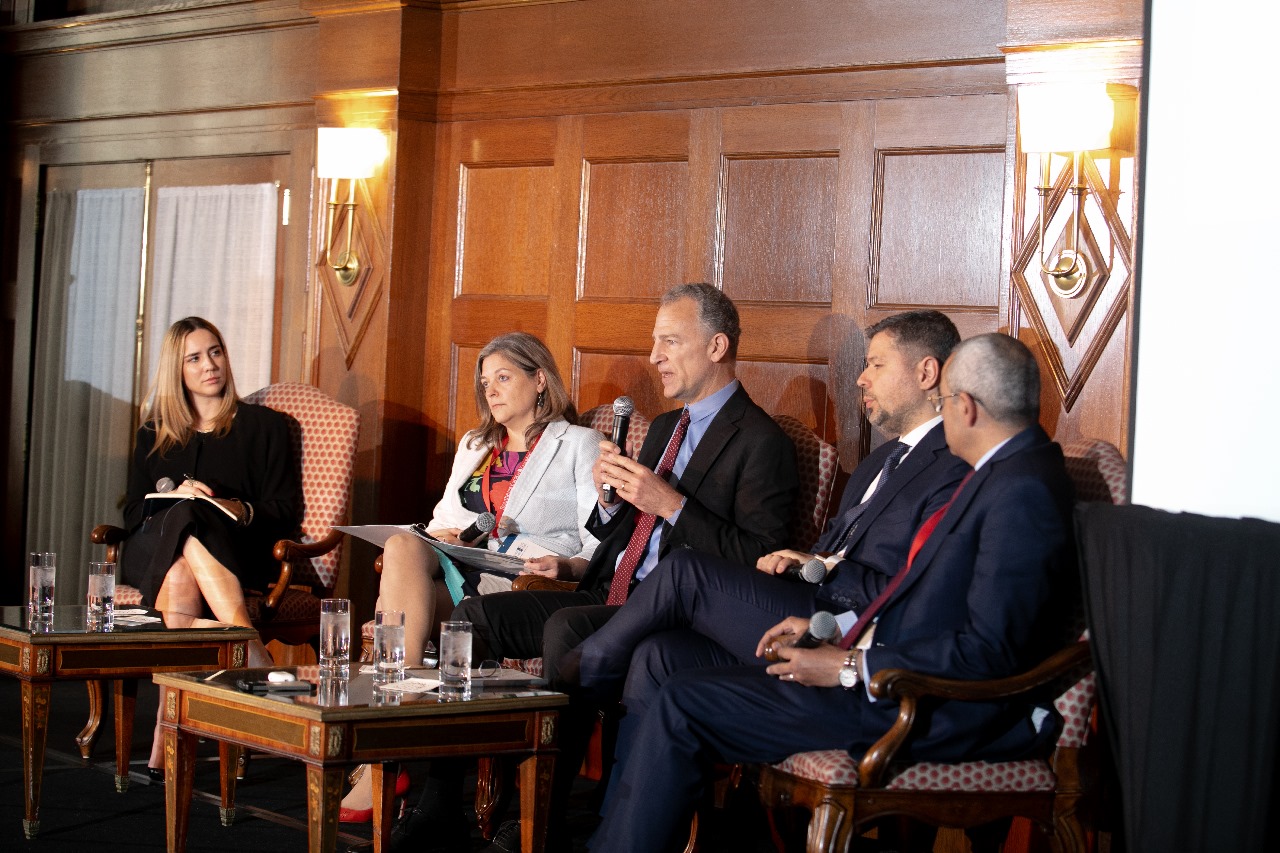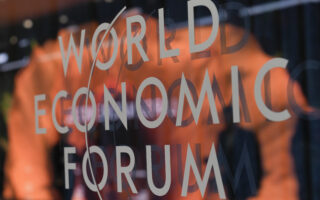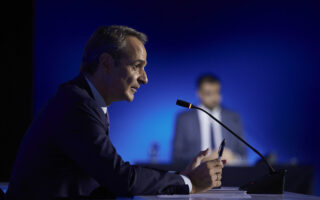Greece’s role in shifting global dynamics
Insights from the Southeastern Europe & East Mediterranean Forum that was held in Washington, DC, last week
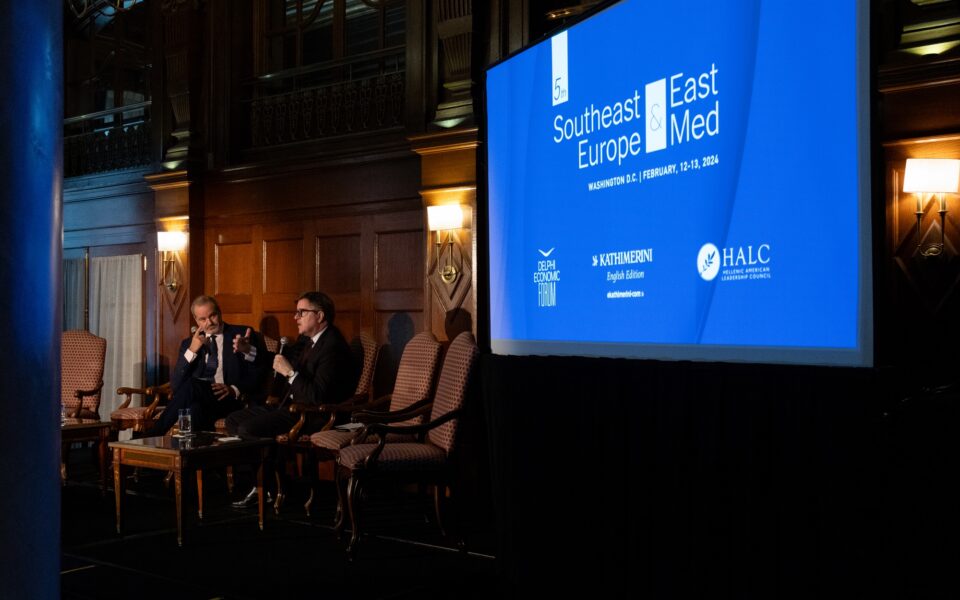
The delicate balances in a rapidly changing world and a world order that is being tested by two devastating wars, while global leaders are holding their breath in view of the US elections, were the focus of the discussions that took place on February 12 and 13 at the 5th Forum for Southeast Europe and the Eastern Mediterranean, co-organized by Kathimerini English Edition, Delphi Economic Forum and the Hellenic American Leadership Council (HALC) in Washington, DC.
The strategic dimension of Greek-American relations, the difficult relationship with Turkey, but also more broadly in Greece’s area of interest, the architecture of connectivity as opposed to perceptions of entrenchment were discussed by most participants.
The possibility of Donald Trump’s return to the White House seems to worry lawmakers in Washington. Senator Chris Van Hollen of Maryland speculated that a second Trump presidency, with Trump accompanied by his “cronies,” would “create a world of instability.” “It’s hard to protect the NATO Alliance with a ‘commander in chief’ like Trump,” he said.
As expected, US administration officials tried to play down Trump’s threats against NATO during the forum, prompting reactions from NATO Secretary-General Jens Stoltenberg.
Assistant Secretary of State for European and Eurasian Affairs James O’Brien assessed that there was a “sense of awareness” hidden in Trump’s comments, as the former president “feels responsible for increasing allies’ spending on our defenses, something we all agree on.”
In fact, to bolster his argument, O’Brien pointed out that under three successive US presidencies since 2014, “NATO allies have spent about $625 billion on their defense. And in the last two years, on top of that increase, they’ve added another $125 billion to increase their munitions and defense capabilities.”
O’Brien also referred to the F-35 fighter jets that Greece is procuring as part of NATO’s overall regional buildup. In general, O’Brien assessed that the image the US is projecting abroad is also reminiscent of earlier historical occasions, such as in 1941, when political forces in Washington clashed not only over whether the US should enter World War II, but also over whether to reduce the military forces at its disposal.
He even referred to Winston Churchill, who had said, “You can always count on the Americans to do the right thing after they have tried everything else.”
A second Trump presidency, with Donald Trump accompanied by his ‘cronies,’ would ‘create a world of instability,’ said US Senator Chris Van Hollen of Maryland
Similar remarks were made by Geoffrey Pyatt, assistant secretary of state for energy resources and longtime ambassador to Athens, who said that every time he travels abroad, he is urged to get the US more actively involved in world affairs.
And even Greek Deputy Foreign Minister Alexandra Papadopoulou, in one of her statements, also emphasized the need for greater American involvement in order for the world to stabilize again.
Both O’Brien and the other officials who participated in the forum studiously avoided mentioning how the US can (or cannot) guarantee Greece’s security, especially in light of recent developments regarding the Turkish F-16s.
Papadopoulou stressed that Greece “does not want a big anti-Western country as a neighbor” and reiterated Athens’ support for Ankara’s Western ambitions, including the prospect of EU membership. However, analysts such as Sinan Ciddi and Jonathan Schanzer of the Foundation for Defense of Democracies (FDD) think tank were not particularly optimistic about Turkey’s future course and its rather dysfunctional relationship with the West.
The debate on this issue was indicative of the awkwardness with which the Western Balkans have been treated in recent years, sometimes very close and sometimes even further away from the prospect of joining the EU.
It was interesting that Papadopoulou (who has served in Skopje and Pristina both as a representative of Athens and as head of the EU mission in Kosovo) stressed the importance of recognizing that the citizens of these countries must be given hope and that we must realize that these are people who live in the middle of the European continent, who are educated and who see very clearly what is happening around them.
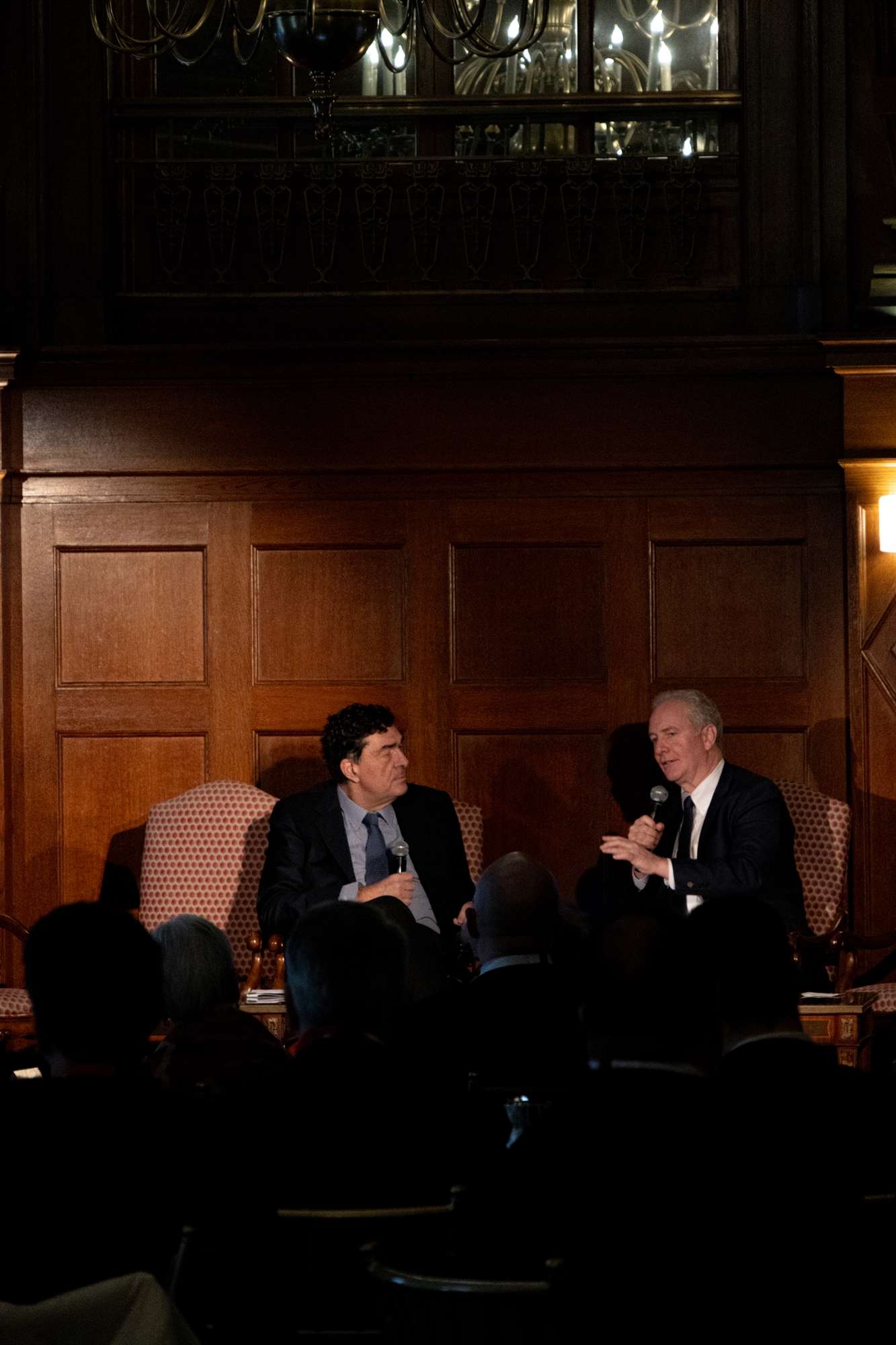
On a more pessimistic note, Greek Minister of Migration and Asylum Dimitris Kairidis recalled that more than 20 years after the Thessaloniki Declaration, “we are no closer to the accession of the Western Balkans into the EU,” despite signs of optimism coming from various EU policies.
Evangelos Kalpadakis, diplomatic adviser to former prime minister Alexis Tsipras, stressed that Greece should support the European prospects of the Western Balkans and even more actively of North Macedonia. In fact, he referred to the need to establish a High Cooperation Council and to sign new agreements with the Balkan country.
As was made abundantly clear at the forum, the primary goal of US foreign policy remains the containment of Russian influence to the maximum extent possible, and one of the tools is energy policy and the creation of various networks of connection and cooperation among (not always) like-minded nations.
In this regard, almost all US officials referred to the role of Alexandroupoli in northern Greece, to the Gas Interconnector Greece-Bulgaria (IGB), with Kimberly Harrington, deputy assistant secretary at the Bureau of Energy Resources, noting that the forthcoming interconnection between Greece and North Macedonia will increase the latter’s energy security.
The general prism of US foreign policy in this area is also evident in Harrington’s assessment that a general decline in Russia’s role as a gas exporter is inevitable by 2030.
In terms of networks and connectivity among allies and partners, the India-Middle East-Europe Economic Corridor (IMEC) was also discussed, as well as the Three Seas Initiative, which Greece has recently joined and which in theory will link the Baltic, Adriatic, Black and Aegean seas with the completion of various projects that will connect and expand networks of roads, ports and pipelines, thereby increasing the resilience of Eastern Europe.
